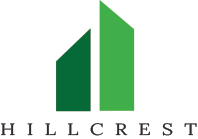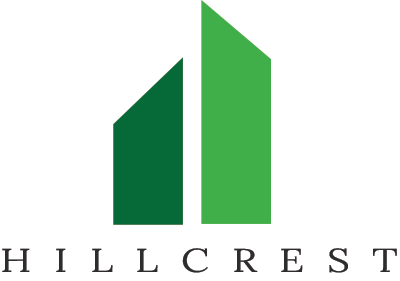Who pays the HOA renter or owner? Rental properties are already difficult to navigate in a homeowners association. Adding the complexities of fees and rent can make it harder for both landlords and renters.
Who Pays the HOA Renter or Owner?
In an HOA community, homeowners are financially obligated to pay regular fees to the association. Failure to pay these fees can even result in unsavory consequences, including but not limited to late fees, liens, and foreclosure. Assuming an HOA allows rentals, homeowners who wish to be landlords must understand the financial implications of renting out their properties.
The governing documents usually dictate that homeowners must pay HOA fees. Following this logic, the owner typically shoulders this responsibility even when renting out their homes. The homeowner can incorporate the HOA fee into the lease agreement. They can do this by collecting the renter’s extra fee or integrating it into the rent to cover the cost.
Keep in mind that renters also benefit from the HOA’s amenities and services. Because of this, it would be reasonable for a landlord or homeowner to charge the HOA fee to the tenant.
Do Renters Have to Pay HOA Fees?
 It is essential to understand what HOA fees are and what purpose they serve. HOA fees cover the costs associated with running the community.
It is essential to understand what HOA fees are and what purpose they serve. HOA fees cover the costs associated with running the community.
These costs include maintenance, upkeep, insurance, professional fees, security, etc. Given that renters benefit from these things, it only makes sense for them to pay the HOA fee.
So, does the renter pay the HOA?
It generally depends on the landlord’s agreement with the renter, which should be covered in the lease agreement or rental contract. Typically, the renter pays HOA fees.
There are two ways this can happen. First, the landlord can include the cost of the fee in the rent. The landlord can then pay the HOA using the money collected.
Second, the landlord can instruct the renter to pay the HOA directly. In this second scenario, the HOA and the renter will have to communicate with each other. The HOA will need to send the invoice to the renter, and the renter will need to pay the HOA using the payment method/s provided.
Most landlords choose the second option because it is more convenient for them, but this option comes with a caveat. If the renter fails to pay the HOA, the landlord or homeowner suffers the consequences.
The first option avoids this, as the landlord can monitor payments and control the situation. In this case, the landlord can evict the renter for not paying the rent or violating the lease agreement.
Understanding Short-Term Rentals: Who Pays HOA Renter or Owner?
Tenants usually pay HOA fees for long-term rentals, but there is more than one type of rental in an HOA. While not always allowed in HOAs, short-term rentals can still exist within communities. In this case, does the renter pay the HOA fee?
When it comes to short-term rentals, the landlord or homeowner usually covers the HOA fee. They then incorporate the fee’s cost into the calculation of the rental price per night. This can vary depending on the community or landlord.
Are HOA Dues Included in Rent?
The lease agreement determines whether or not HOA dues are included in the rent. To avoid surprises, tenants should ask their landlord, “Does rent include HOA fees?”
In turn, the landlord needs to include this information in the lease agreement. The agreement should state, in clear language, that HOA fees are the tenant’s responsibility. This should also include the terms, such as the amount, the frequency of payments, and the method of payment. The agreement should also state the consequences for nonpayment, which can include eviction.
On the other hand, the landlord can just include HOA dues in the monthly rent. For tenants, it is vital that this information also appears in the lease agreement. This way, the landlord can’t claim that the HOA fee is an additional fee outside of the rent.
Do Renters Have Rights in an HOA?
 Renters do have rights in an HOA community. Landlords or homeowners have a right to enjoy the common amenities of the neighborhood, which is transferred to renters as well.
Renters do have rights in an HOA community. Landlords or homeowners have a right to enjoy the common amenities of the neighborhood, which is transferred to renters as well.
However, homeowners retain their voting and membership rights. Sometimes, a homeowner will assign their tenant as their proxy for voting.
Whether renters can attend board meetings depends on the governing documents. However, renters often have the right to attend and participate in board meetings, as community issues may also affect them. This is especially true for long-term renters.
Furthermore, renters have a right to non-discrimination and fair treatment. The Fair Housing Act protects residents, including renters, from discrimination based on protected classes. An HOA can’t suddenly decide that the rules only selectively apply to renters.
Other renter rights in an HOA include:
- Receive notices from their landlord;
- Quiet enjoyment of their unit or home;
- Due process when it comes to violations of rules;
- Habitability and safety;
- Privacy and proper notice before the HOA or landlord enters the home or unit; and,
- Attend community events.
Renters have rights, but they also have obligations in a homeowners association. This includes the obligation to follow the HOA’s rules. The lease agreement should cover what will happen if a tenant violates the HOA’s rules.
Do Tenants Pay HOA Fees in Mixed-Use Developments?
Tenants do pay HOA fees in mixed-use developments. Mixed-use communities tend to have multiple associations under them – one for residential and one for commercial.
Commercial tenants must pay association dues, which cover the expenses for maintaining shared areas. Residential tenants also pay HOA fees. Homeowners must pay these fees, and if they choose to rent out their units, they can collect the fee from their tenants.
Who Pays the HOA Renter or Owner? Answered!
Rent payments can be confusing enough, so adding another layer in HOA fees can make things even more difficult. Fortunately, landlords and tenants can settle this question based on their agreement. Whatever that may be, ensuring the lease or rental agreement covers the stipulations is important.
Hillcrest provides expert financial management services, including help with HOA fees. Call us today at 630-627-3303 or contact us online to request a proposal!
RELATED ARTICLES:
- Duties And Responsibilities Of HOA Board Members
- How To Amend HOA Bylaws And Covenants In Chicago
- Benefits, Process, And Tips For Hiring HOA Management Company





